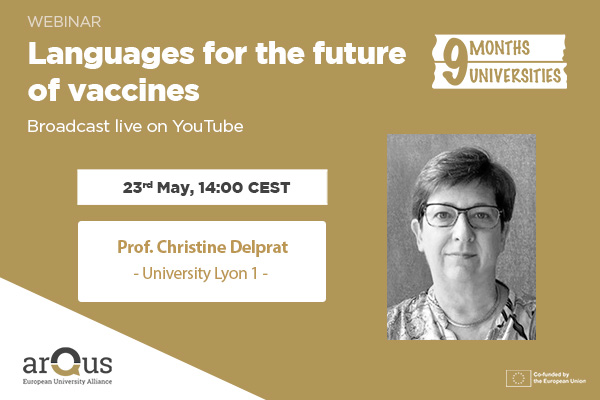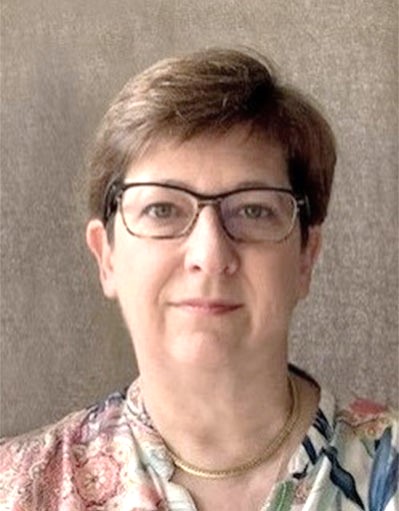
Eighth webinar of the “9 months, 9 universities” series: Languages for the future of vaccines

Type: Arqus Plurilingual and Intercultural Hub
Open to: Academics & researchers, Teachers
Arqus invites academics and students to participate in the eighth webinar of the 9 Months, 9 Universities series: “Languages for the future of vaccines”, which will be broadcast live on the Arqus YouTube channel on 23rd May 2024 at 14:00 CEST.
In this webinar, Christine Delprat, Professor of Immunology at the University of Lyon 1, will explore how language influences the distribution and comprehension of vaccine information, and how cultural and linguistic diversity impacts vaccine acceptance. For this objective, she will present the results of a project involving real-life scenarios in multicultural settings with international students. The project, called SAQinVAC – Social Acute Question in Vaccinology, aims to tackle vaccine hesitancy, both in France and globally, by debunking specific examples of vaccine misinformation. More information.

Speaker:
Christine Delprat is a Professor of Immunology and the President of the UFR Biosciences International Relations Committee at the University of Lyon 1, carrying research in onco-immunology at the Cancer Research Center of Lyon. Since 2015, she has been the Coordinator of a Master’s Programme in international vaccinology, which attracted more than 1,700 applicants from 108 nationalities in 2024: the Erasmus Mundus Joint Master’s Programme “Leading International Vaccinology Education – LIVE”, developed by five universities in Spain, Belgium and France. She thrives on leading international training programmes at the forefront of research within a multicultural and multidisciplinary environment, bridging the realms of immunology and vaccine communication. Her reach extends beyond current and future vaccinologists to engage with a broader audience on vaccine-related topics.
9 Months, 9 Universities is a new series of guest lectures that focus on specific topics related to language and culture and target mainly graduate and postgraduate students as well as early-stage researchers and lecturers interested in these topics. The lectures are intended to generate awareness and appreciation for the topic of multilingualism as well as an understanding of the many areas of our lives that are influenced by language.